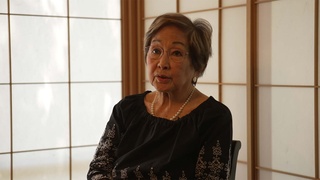Interviews
Reuniting with parents in America
Probably around January of 1948, they told us that we had to return to United States to go back to our parents, whom we don’t remember, and leave our grandmother who raised us and saved us from total annihilation. Basically we raised holy hell. I mean we didn’t want to come back to United States. We wanted to stay with grandma. Okay, that was our mentality.
However, with lots of yelling and crying, and so forth, they put us on a ship from Yokohama in March of 1948, destined for the United States. Took us two weeks with a stopover in Hawaii to finally get here. So, two of us, my brother at 11 and a half and myself at 10, we were on the ship all by ourselves.
Date: September 3, 2019
Location: California, US
Interviewer: Masako Miki
Contributed by: Watase Media Arts Center, Japanese American National Museum


